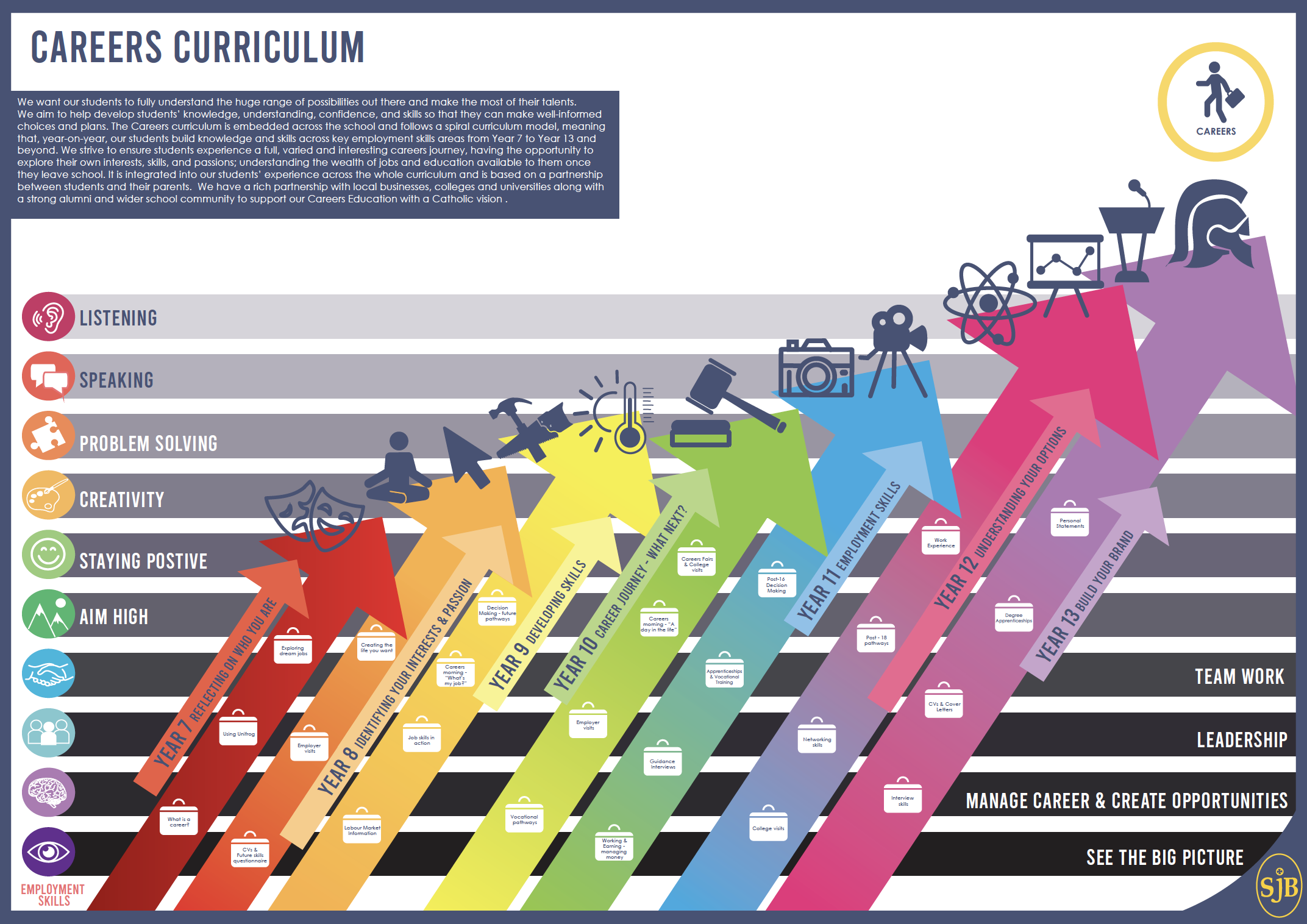Mahatma Gandhi once said “The best way to find yourself is to lose yourself in the service of others.” Imagine for a moment, a world where everyone selflessly serves one another, where kindness and compassion are our guiding principles. This is the world that Gandhi envisioned. Gandhi, a man of peace and wisdom, believed that the path to self-discovery and fulfilment lies in serving others. He found himself by losing himself in service. He was not alone in this belief. Our own Catholic tradition teaches us the importance of service. In the Bible, Jesus said, “Love one another. As I have loved you, so you must love one another.” (John 13:34)
When we give to others, when we offer our time, skills, and kindness we discover our true selves. Service helps us connect and find purpose.
At SJB we believe that students should be given a wide range of opportunities to serve others; and to develop and practise leadership skills in preparation for life beyond school. We encourage students to engage in the wider life of school, and we support, develop and challenge them to be responsible, resilient, independent young people who are willing to serve the community. There are so many leadership opportunities available to students, below is just a flavour of what is currently on offer.
Many of our Student Leadership activities focus on improving the quality of learning and teaching in the classroom, supporting the school’s aim to be a place where everyone enjoys learning and, through a wide range of opportunities, grows into happy, confident, resilient and articulate young people who leave SJB equipped to lead fulfilling lives and make a positive contribution to society. By trying new things, being creative, solving problems and embracing their responsibilities individuals develop in character and our community is strengthened.
Aims of our Student Leadership Programme
- To empower students to work in partnership with staff towards shared goals.
- To enable creativity to flourish as the school community benefits from the wealth of experiences, ideas, skills and sense of fun that students bring.
- To provide opportunities for students to develop leadership skills through a variety of inspiring, challenging and valued projects which impact positively on learning, teaching and well-being for both students and staff at Parliament Hill School.
- To prepare students for Higher Education and for achieving personal and professional excellence in life after formal education.
The Student Council
The Student Council provides all students with an opportunity to share their views and offer the School Leadership Team advice and guidance. The Student Council empowers students and helps to ensure that everyone is kept up-to-date and feels involved with decisions that are made; it also enables everyone to take action and to lead change.
Two Form Reps from every Tutor Group are elected to represent their peers and sit on the Student Council. The Sixth Form are represented by the Head Boy, Head Girl, Deputy Head Boy and Deputy Head Girl. These Form Reps:
- Take pride in their role and act as role models.
- Gather the views and opinions of their Tutor Group ready to feedback to their Year Reps and the Head of Year.
- Meet with their Head of Year at least once a half term to provide feedback and raise key issues affecting the year group (in a scheduled Year Meeting)
From this group of 112 students, Year Reps have been elected by their peers to sit on the Student Leadership Team and meet periodically with Miss Dwyer, Mr Kelly and Mr Granville Hamshar.
In 2023-24 all Form Reps were consulted on the following areas of school life:
- The PSHE / RSE Curriculum Model
- Behaviour and Anti-bullying
- The school catering service
- Careers and the wider curriculum offer (including trips and extra-curricular provision)
- Timetable structure and double lessons
The individual year groups have also looked at other pertinent aspects of school life.
Their valuable input has led to change in several key policies and practices in school.
The Student Committees
We currently have nine different Student Committees. These are action teams that work with a member of staff to lead change within the school. The Committees for 2023-24 together with the lead teacher are detailed below:
- Anti-bullying – Miss Duke
- Apple Ambassadors – Miss Atherton
- Chaplaincy – Mrs Hodgson
- Charity – Mrs Arfield
- Diversity – Miss Brooks & Mrs Ray
- Environment – Miss Townend
- Learning & Teaching – Miss Cavell
- Careers Ambassadors – Miss Paling
The Committees are open to all students who wish to join; please contact the relevant teacher for more information.
Sixth Form Leadership Team
In addition to representing the views of their year group, the Sixth Form Leadership Team also focus on: diversity, wellbeing, charity, environment, chaplaincy and learning and across the whole school, working closely with our Student Committees and the younger students to support them in their leadership roles. These areas are fluid and reflect priorities according to the cohort. The Sixth Form Leadership Team are elected in the second half of the autumn term to ensure that all external students joining in Year 12 have the opportunity to participate; their term runs from January to January.
There are also a number of additional Sixth Form leadership roles which we look forward to a significant number of students being involved in to support both the school and local community:
- Mentoring younger students
- Break duty
- Litter picking
- Support in main school lessons
- Car-parking for events and functions
- Meeting, touring with and talking to visitors
- Leading sports teams
